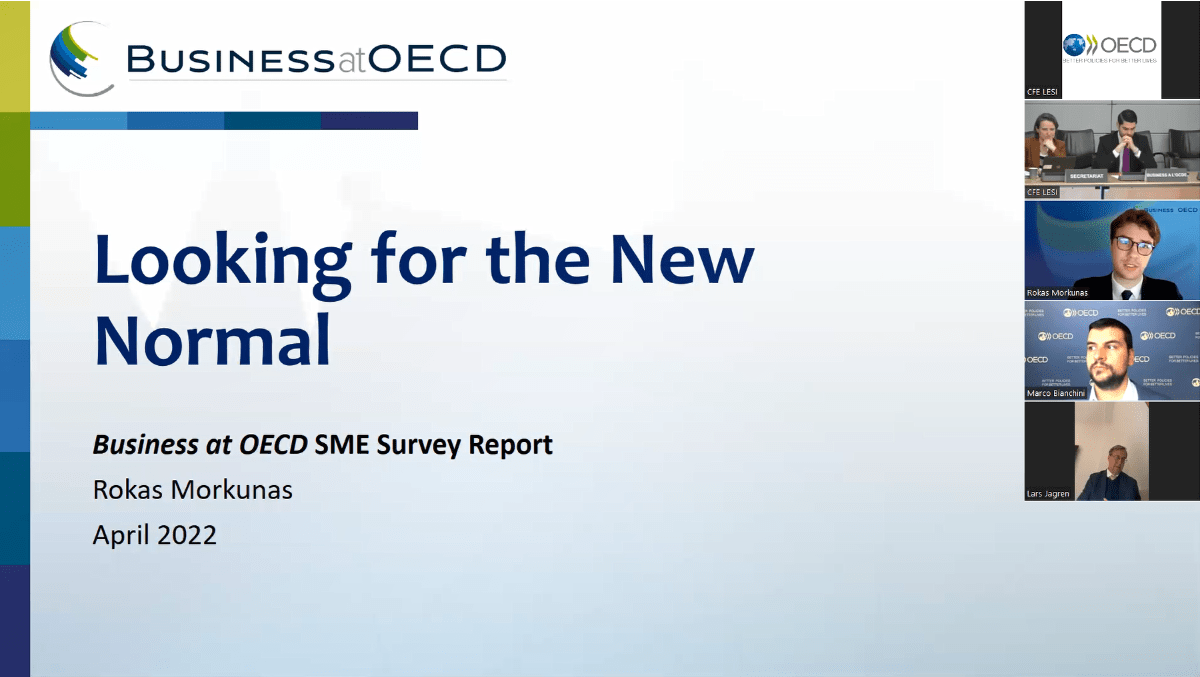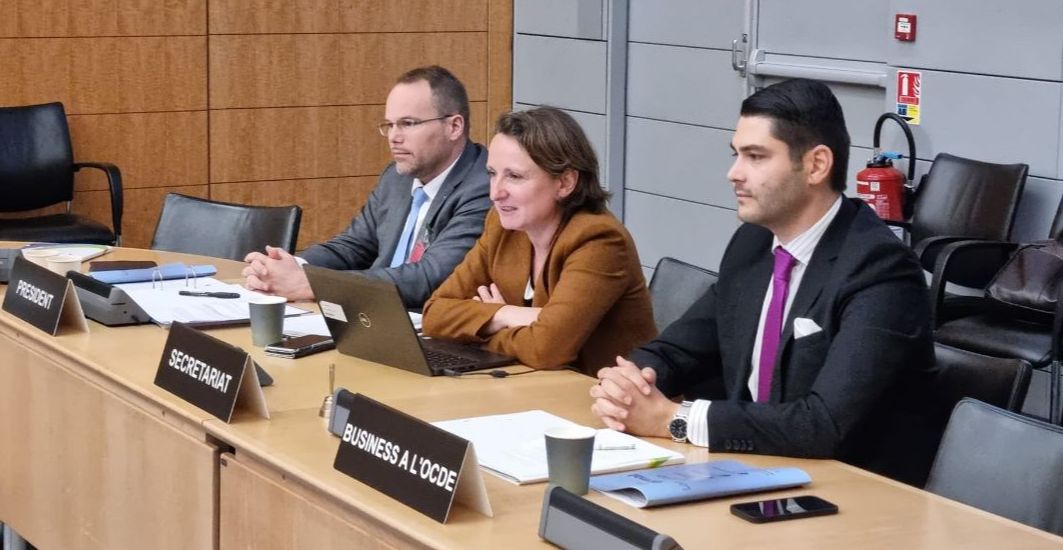About Us
Discover how we advance the business voice at the OECD through a clear institutional mandate, robust governance, and a diverse global network.
About Us
About Us
Discover how we advance the business voice at the OECD through a clear institutional mandate, robust governance, and a diverse global network.
The OECD
The OECD
Explore how the OECD shapes market-based economies through its standards, recommendations and analysis that matter to the private sector.
About the OECD
Explore the OECD’s role and unique features
Why the OECD Matters
Find out how the OECD impacts business
.jpg?width=4554&height=3138&name=2019%20OECD%20Forum%20(1).jpg)
Learn more about the OECD
See morePolicy Areas
Policy Areas
Explore our policy recommendations to the OECD and governments to foster economic growth, sustainable development, and societal prosperity.
Competitiveness and Growth
Competition, Economy, Entrepreneurship, Finance, Governance, Regulation, SMEs,
Emerging Markets
Caribbean, China, Development, Latin America, Southeast Asia
Food, Health, Well-Being
Agriculture, Food, Health, Tourism
Green Growth
Biotechnology, Chemicals, Environment, Energy, Nanotechnology
Innovation and Digital
Consumer Policy, Digital, Innovation, Technology
Open Markets
Export Credits, Illicit Trade, Investment, Trade
Responsible Business
Anti-Corruption, Corporate Governance, Integrity, Responsible Business Conduct
Skills and Employment
Education, Employment, Labour, Private Pensions, Social Affairs
Tax and Fiscal Affairs
Advocacy
Advocacy
Explore how we bring business priorities to the table in our engagement with Governments, the OECD, and the G7, and the G20.
Engagement with Ministers
How we engage with Government Ministers
Consultation with the OECD's Council
How we advise the OECD's Leadership and Ambassadors
Role in the OECD's Bodies
How we contribute to the OECD's Committees and Working Parties
Advice to the G7 and G20
How we support the B7 and B20

Join us in Paris for our high-level roundtable on health and life sciences competitiveness.
Register hereNewsroom
Need to contact our communications department?
For interview and comment requests, send an e-mail to our Communications Manager, Max Jablonowski, jablonowski@biac.org.
Last week, we organized the launch event of our Business at OECD (BIAC) SME Survey “Looking for the New Normal” report, which identifies how small businesses have adapted to new challenges that are changing business practices, and what digital tools will be useful for their future resilience. Held at the OECD, we broadcasted the event simultaneously through Zoom, and brought together OECD, government and business representatives.

Opening the conference, our SME and Entrepreneurship Committee Chair Patrik Kovács stressed the role SMEs play in our global economies and how the OECD can advance best practices sharing, and ensure SMEs can strengthen the real economy. “This is why focus on SMEs, and in particular, putting emphasis on stimulating innovation, entrepreneurship and small business development is one of our top 10 Business at OECD priorities for 2022.”

Martin Godel, the chair of OECD Committee on SMEs and Entrepreneurship, underlined how SMEs and Entrepreneurship are the backbone of OECD economies. “It is encompassed by the work of Business at OECD, which represents a very important partner for our committee to give SMEs and Entrepreneurs a central role in the policy agenda of the OECD and its member countries” said Mr. Godel. Celine Kauffmann, Head of the Entrepreneurship SME and Tourism Division also expressed her appreciation for the results of the survey, which informs the Committee on the critical topic of strengthening SME resilience, particularly in the context of market uncertainty.
.jpeg?width=302&height=206&name=Image%20(33).jpeg)
Anti-Illicit Trade
23 January 2026
Third OECD Dialogue on Non-Counterfeit Illicit Products: Business at OECD Underlines Importance of Work on Illicit Trade

Health
21 January 2026
Business at OECD and the French Healthcare Business Forum: Driving Health and Economic Competitiveness

Digital Policy
17 December 2025
OECD-European Patent Office New Report on "Mapping the Global Quantum Ecosystem": Business Must be a Stakeholder at all Levels

Member Relations
16 December 2025
Message from our Executive Director: 2025 Season's Greetings

Integrity and Anti–Corruption
10 December 2025
International Anti-Corruption Day 2025 Business Integrity and Anti-Corruption Conference: Business Drives the Zero Corruption Agenda

Education
09 December 2025
2025 OECD Skills Outlook: Business Underlines Importance of Skills Development and Reducing Skills Shortages